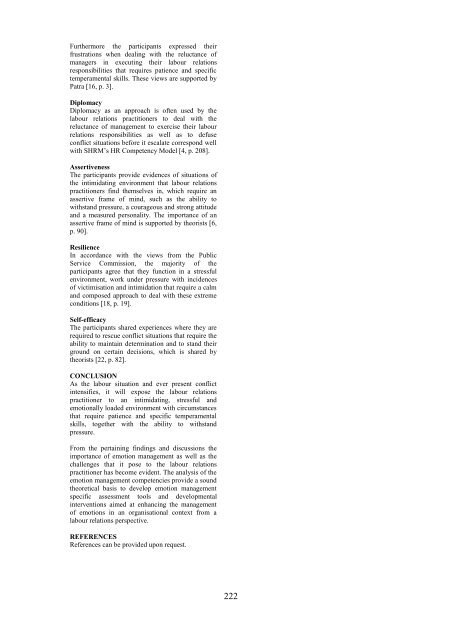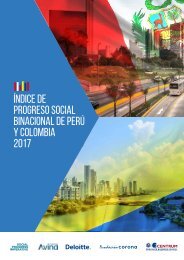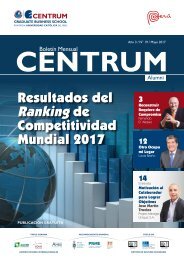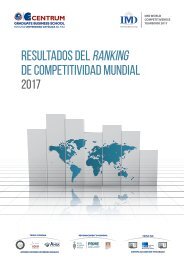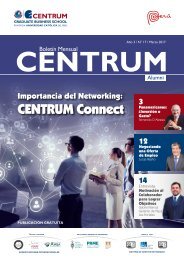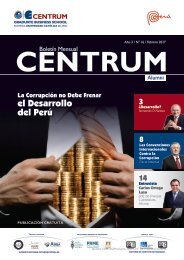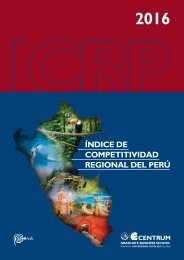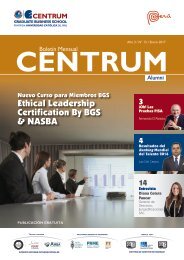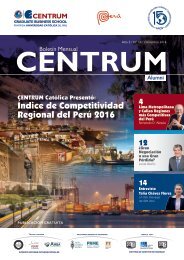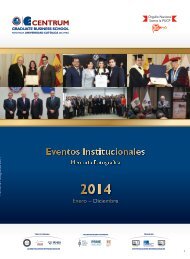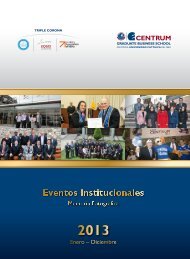Pan-Pacific Conference XXXIV. Designing New Business Models in Developing Economies
This publication represents the Proceedings of the 34th Annual Pan-Pacific Conference being held in Lima, Peru May 29-31, 2017. The Pan-Pacific Conference has served as an important forum for the exchange of ideas and information for promoting understanding and cooperation among the peoples of the world since 1984. Last year, we had a memorable conference in Miri, Malaysia, in cooperation with Curtin University Sarawak, under the theme of “Building a Smart Society through Innovation and Co-creation.” Professor Pauline Ho served as Chair of the Local Organizing Committee, with strong leadership support of Pro Vice-Chancellor Professor Jim Mienczakowski and Dean Jonathan Winterton.
This publication represents the Proceedings of the 34th Annual Pan-Pacific Conference being held in Lima, Peru May 29-31, 2017. The Pan-Pacific Conference has served as an important forum for the exchange of ideas and information for promoting understanding and cooperation among the peoples of the world since 1984. Last year, we had a memorable conference in Miri, Malaysia, in cooperation with Curtin University Sarawak, under the theme of “Building a Smart Society through Innovation and Co-creation.” Professor Pauline Ho served as Chair of the Local Organizing Committee, with strong leadership support of Pro Vice-Chancellor Professor Jim Mienczakowski and Dean Jonathan Winterton.
You also want an ePaper? Increase the reach of your titles
YUMPU automatically turns print PDFs into web optimized ePapers that Google loves.
Furthermore the participants expressed their<br />
frustrations when deal<strong>in</strong>g with the reluctance of<br />
managers <strong>in</strong> execut<strong>in</strong>g their labour relations<br />
responsibilities that requires patience and specific<br />
temperamental skills. These views are supported by<br />
Patra [16, p. 3].<br />
Diplomacy<br />
Diplomacy as an approach is often used by the<br />
labour relations practitioners to deal with the<br />
reluctance of management to exercise their labour<br />
relations responsibilities as well as to defuse<br />
conflict situations before it escalate correspond well<br />
with SHRM’s HR Competency Model [4, p. 208].<br />
Assertiveness<br />
The participants provide evidences of situations of<br />
the <strong>in</strong>timidat<strong>in</strong>g environment that labour relations<br />
practitioners f<strong>in</strong>d themselves <strong>in</strong>, which require an<br />
assertive frame of m<strong>in</strong>d, such as the ability to<br />
withstand pressure, a courageous and strong attitude<br />
and a measured personality. The importance of an<br />
assertive frame of m<strong>in</strong>d is supported by theorists [6,<br />
p. 90].<br />
Resilience<br />
In accordance with the views from the Public<br />
Service Commission, the majority of the<br />
participants agree that they function <strong>in</strong> a stressful<br />
environment, work under pressure with <strong>in</strong>cidences<br />
of victimisation and <strong>in</strong>timidation that require a calm<br />
and composed approach to deal with these extreme<br />
conditions [18, p. 19].<br />
Self-efficacy<br />
The participants shared experiences where they are<br />
required to rescue conflict situations that require the<br />
ability to ma<strong>in</strong>ta<strong>in</strong> determ<strong>in</strong>ation and to stand their<br />
ground on certa<strong>in</strong> decisions, which is shared by<br />
theorists [22, p. 82].<br />
CONCLUSION<br />
As the labour situation and ever present conflict<br />
<strong>in</strong>tensifies, it will expose the labour relations<br />
practitioner to an <strong>in</strong>timidat<strong>in</strong>g, stressful and<br />
emotionally loaded environment with circumstances<br />
that require patience and specific temperamental<br />
skills, together with the ability to withstand<br />
pressure.<br />
From the perta<strong>in</strong><strong>in</strong>g f<strong>in</strong>d<strong>in</strong>gs and discussions the<br />
importance of emotion management as well as the<br />
challenges that it pose to the labour relations<br />
practitioner has become evident. The analysis of the<br />
emotion management competencies provide a sound<br />
theoretical basis to develop emotion management<br />
specific assessment tools and developmental<br />
<strong>in</strong>terventions aimed at enhanc<strong>in</strong>g the management<br />
of emotions <strong>in</strong> an organisational context from a<br />
labour relations perspective.<br />
REFERENCES<br />
References can be provided upon request.<br />
222


